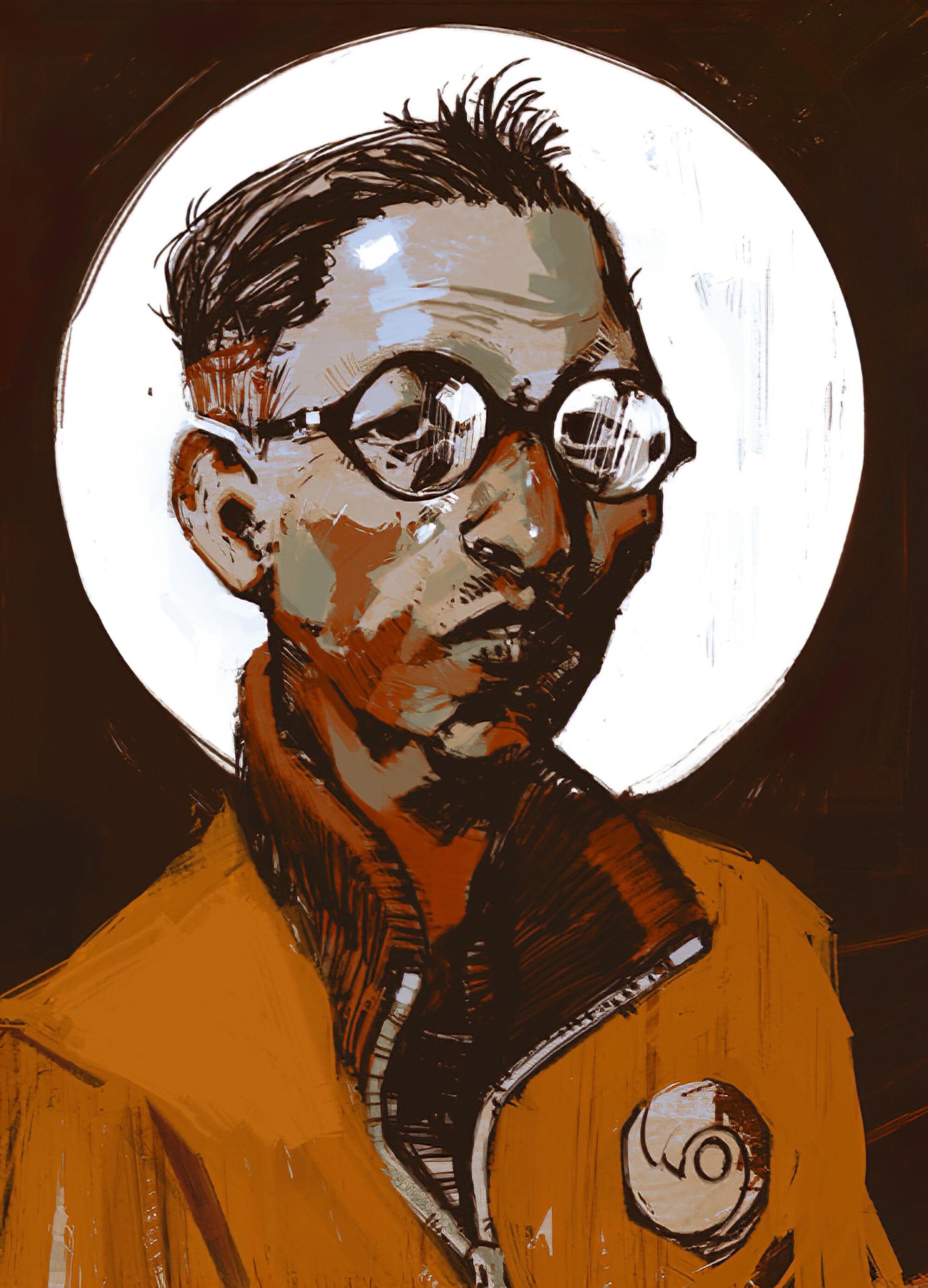Removing cars from urban areas means lower carbon emissions, less air pollution, and fewer road traffic accidents
Not to mention how much quieter it is.
I feel like this is people about most things. Most people aren't very imaginative.
They're kind of stupidly in favor of how things are, but once it changes they're like this is great I don't know why we didn't do it before.
Like imagine if free public libraries didn't exist and someone tried to create them. Conservatives would shit their pants hating it.
IMO part of the fix for that is liberating psychedelics. There has been some research finding that if someone takes psilocybin (shrooms) before they reach the age of 35, they are significantly more open minded for the rest of their life. Though I’m not sure how they controlled for the question as to whether the drug makes people more psychologically flexible or whether they are more psychologically flexible in the first place if they are willing to try it.
Either way, it seems to naturally follow that conservatives proportionally tend to avoid psychedelics. It’s anecdotal but my fellow psychonauts are all liberal.
Wait until you hear that some not only hate the ideas, but think they’re a conspiracy theory by some higher power to make people….. be able to walk to the shops? I don’t know…
Every time a new apartment or condo development gets built here, there are people in the local community forums who rabble about "15 minute cities" and how they are trying to force us get rid of cars and control our travel. In spite of the fact these buildings are built with parking lots and garages that are as big as, if not bigger than the buildings themselves.
Always worth remembering that American-style suburbs were a deliberate political project in the postwar period. They didn't "just happen", the government spend billions making them happen at the behest of auto makers, property developers, and racists (but I repeat myself).
"What seems to work best is a carrot-and-stick approach—creating positive reasons to take a bus or to cycle rather than just making driving harder."
I guess this is why we shouldn't only play the "fuck cars" tune but also include melodies like "we love to bike" and "public transport is fun" 😉
But then they call you insane because transit very obviously shitty. Like i shill for the alternatives but its barely functional most of the time, much less pleasant
Feel free to spit on the current state of transit; it's shit in so many places and there's no pretending otherwise. It's important to stress that the transit will be unrecognizable from current state if properly funded. If people think I'm talking about them ditching their cars, getting on the existing transit and watching their trip times go up 292%, they'd be right to dismiss me.
I've already warmed up to the idea that we'd have to force positives changes through in the dead of night. With all things said and done, watch those who'd rail against it say they've always been in favor of it.
The secret to making things better in the world is that you can't rely on people making good choices, you have to remove the bad choices.
It's like when chuds try to take credit for civil rights, or 5 day work weeks (Henry Ford willed the concept into existence, not years of direct action by the labor movement).
Lenin talked about how the ruling class will actively oppose a revolutionary figure, but once society at large accepts them, the ruling class will switch face and pretend like it always supported said figure.
I imagine bikes will be very useful in making US cities walkable. The streets have been built very wide to make space for cars, which would make walking more tedious, but bikes are the perfect solution to this bc they let you cover more (flat) distance with just the power of your legs.
A return to trolleys would also be lovely. A lot of American cities are already laid out with trolleycars in mind.
Yeah, cities in America from around 1870 to 1920 had extensive trolleycar networks. They were so widespread you could hop between them and even travel across state lines. Every major city had them and they were the primary mode of urban transportation. Now cities only have trolleycars as a novelty, like San Francisco still has theirs. New Orleans has beautiful streetcar lines. They're mostly used for tourists, but if they were made more extensive and modernized then New Orleans could have very functional mass transit.
Most of the trolley networks were ripped up to make room for extra lanes or parking lots. It wouldn't be easy, but it would be possible to repurpose existing roads for trams/trolleys. I really believe this.
So do I. Yeah a ton of cities used to have them too over here in the UK but very few are still around.
Every two lane road has enough space for four lanes of bicycles (one passing lane for ebikes and one lane for normal bikes going in each direction)
This conforms to my own experience. I first got on the "anti cars" train back when I was a lib, and I got on that train precisely because I worked a job in a place where I wasn't allowed to have a car, but there was a bus that took me directly to work in the morning and everything else was walkable/busable and occasionally I would take a price-controlled taxi.
Not having to pay insurance or buy gas, not having to find parking, not having to wait in traffic, being able to read or use my phone during my commute - it's all so nice, I got converted before I had ever heard the word "urbanism" and before anyone had invented the term "fifteen minute city".
Is there a FAQ about living in car free cities? For example, how do you travel to another city? What do you do if the city has high slopes making walking and biking too hard? Or how do elders deal with what other citizens would take for granted in terms of mobility?
how do you travel to another city?
Usually by bus or train.
What do you do if the city has high slopes making walking and biking too hard?
Walking is good for you, biking is not too popular in cities with slopes, but electic bikes are changing that.
Or how do elders deal with what other citizens would take for granted in terms of mobility?
There is definitely less mobility, but that is part of getting older isn't it? Usually they just walk a bit slower and use busses and taxies.
It's cool and all, but trains have fixed routes that can't take you almost everywhere. Of course I'd prefer trains over highways, just stating the current fact. Take for example every city I've lived in Mexico: trains never were an option to travel between cities. That's changing, fortunately.
PEVs are still not very common around here, but that answers some questions. Thanks for your reply.
sensible places have enough railways that trains can practically take you everywhere, used to be that here in sweden we had railways even to teensy tiny villages a lot of the time.
What do you do if the city has high slopes making walking and biking too hard?
You shift to a lower gear and go up the hill
What do you do if the city has high slopes making walking and biking too hard?
skill issue. i live in a very hilly area and when i reach a steep slope i simply bike harder.
There's wheelchair accessible bikes
oh damn that's cool as hell. as a general statement i'm not anti-bike or anything, i am just annoyed at how little care some people here have for those who are less able than they are
Good urbanism requires us to take into account not just those who conform to society, but all it's people
100% agreed, and i think our rhetoric should reflect that inclusiveness rather than just defaulting to "can't do it? fuck you"
There are many forms of personal mobility devices (some are even like speed limited, miniature, single person EVs) that make navigating a car free city easy for someone with impaired mobility.
Getting cars out of the way makes it easier to accommodate many levels of movement ability, not harder.
just a friendly heads up, I think you misgendered the person you were referring to.
no, saying skill issue to people who aren't able to bike up steep hills when there are other options such as pedal assist is unhelpful and ableist. it doesn't take being a 'thinker' to deduce that.

Why double down on this of all things? It's not even necessarily about a medical condition (but it's that too, for many of us it's not a skill issue but a heart and lung issue), it's about the fact that biking up a hill can be fucking hard and I wouldn't begrudge anyone for not wanting to do it all the time living in a hilly city, let alone if they're trying to get home after working all day and are dead tired. The person who you were first responding to, who was asking in good faith from everything I can tell, also said "how do elders deal with what other citizens would take for granted in terms of mobility?" You completely disregarded that. Would you tell your 80 year old grandparent just to bike harder in their hilly city? This is a totally legitimate concern and responding "skill issue, just bike harder" really is heading into some ableist territory.
Why double down on this of all things?
because im not being ableist and "hills exist therefore bikes are impossible" is fucking carbrain bullshit
what about people with eating disorders, what about people with depression? seriously think about what you're saying
yeah, car-free cities dont exist. what does exist is cities where you can live a normal life without a driving license. though even there this is restricted to parts of the city i think, where the public transport network is dense enough.
There are major cities that have "less car" zones in their center. Basically they just charge huge fees to bring a car into the area. It is definitely a step forward, but it would be nice if it wasn't "no cars for thee but, yes, cars for me" from the rich.
There are, in fact, some car-free places. But it's largely due to logistic issues (middle of a rain forest or on an island without a bridge. or stupid narrow streets)
- https://en.wikipedia.org/wiki/List_of_car-free_places
I lived across the street from a department store, a grocery, some pizza places, a "smoke" shop, video game stores, and everything else I could want on a normal day. It was amazing. I walked everywhere except to work. I miss living there. The main downside was that it was in Florida.
Totalled my car three years ago. Never bothered buying a new one. I save a lot of money and accepting my faith when relying on public transport has given me so much mental freedom. I take the train to work and the last part of the route is by shared bikes. Love it.
A bicycle is not good enough to transport cargo or large items
Skill issue
It is very easy to accidentally puncture a bicycle wheel tube
Skill issue
A bicycle can be stolen from you more easily than a car
True, but a bike costs a fraction of a car, so it's also much less of an issue if it happens
The bicycle does not protect you from rain and snow and is more difficult to ride on ice, mud and puddles
Skill issue
Nah, I saw some kids stealing a bike in town the other week, and they did it in a few seconds maybe 3 or 4 metres from a security guard. Smart kids, they acted in the moment I walked between them and the guard with pit crew-like efficiency - two steadying the bars, one cutting and removing the lock, and the last getting on the bike - so by the time the security guard called out they were already riding and running away. You can steal a car fast, but not that fast, and not in the middle of a crowded city centre.
The cops definitely don't give the slightest shit, but it's not the only reason.
Nobody's proposing banning ambulances. You should be able to take the metro to the club. You should also be able to take it outside of the city and you can figure out the remainder of your journey from there. Reclaiming land from cars would also allow more space within cities for parks and such and decrease the need to get out of the city to escape dickheads leaning on their horns.
How would ambulances work in a car free city? They seem kind of bulky for a city built for bikes. Unless we're assuming those cities will still have huge roads to drive on?
The roads are huge because of multiple lanes in two directions with street parking on the side. An ambulance only needs one lane.
Probably need two in case multiple emergency vehicles need to be on the scene. Imagine a bombing - you need ambulances, fire trucks, police, etc. That's easy with huge car-based infrastructure but a bike-city seems complicated.
Unless you just build huge roads everywhere despite the lack of cars, which would be sad.
Fine, two. Two-lane, no parking roads are still only a third of the size of four-lane roads with parking on both sides.
Eliminating parking space for cars would be huge.
Might be able to cheat a little with the gravel shoulder, so it's "two lanes" but only if vehicles on the left and right dirve half-off the road.
what the other guy said and, to be honest, i really don't see us just destroying all of the infrastructure our predecessors built. itd be a waste not to convert, say, a city street to a light rail track or something or other.
if you need to take two people at once to the hospital
ambulance
to a nightclub or to the forest outside the city for fishing and barbecue or somewhere else.
shut up, those aren't remotely urgent. Get on your bike.
What if the wheels fell off every single car in the world at the same time? I can come up with ridiculous hypotheticals too.
What about all the ambulances that no longer have to pick up to traffic collision victims? What about the ambulances being able to transport people faster due to the roads being clear of traffic? It's not just a ridiculous hypothetical, it's one that's much more likely to happen with cars around.What if the wheels fell off every single car in the world at the same time?
What if pens got hot?
If you need to go to the hospital, you can call an ambulance that will be able to quickly and easily reach you due to there not being any car traffic. (The utterly ludicrous cost of US healthcare is its own separate problem)
Going to the countryside? Take a bus to the outskirts, or even out into the country itself, and cycle to a particular spot. Going to or from a club? Take the metro, take the bus, maybe even (depending no the strictness of 'no cars') a taxi, which you can afford on special occasions with the literally tens of thousands of dollars you'll have saved by not needing to buy, insure, repair and fuel a car.
You have to also understand that for a car-free society to even be on the table, a number of other social changes will have to have been made too. So just arguing that going without cars is impossible due to the limitations of the car-centric society that currently exists is just circular reasoning. There SHOULD be ways to do the things you've listed without using a car, and the reason there aren't is BECAUSE of cars.
What if an ambulance gets stuck in traffic? What if a road's blocked by an accident? Or because it's being repaired or relaid because of all the car traffic over it?
What if all the ambulances are occupied tending to one of the ~2,500,000 people injured in car accidents each year?
What happens more often where you live -- ambulances reach capacity or somebody gets run over and dies?
It is very easy to accidentally puncture a bicycle wheel tube and the bicycle will become a burden.
things dreamt up by people who have never made physical contact with a bicycle. what are you even talking about
Also with the space and cost that's saved from not having cars you could have completely covered bike lanes
So if we banned cars, all women would stop being attracted to men?
small trucks that are designed to transport things
The optimal city transport network: people on trolleys and ebikes, cargo entering the city on trains and being "last mile"d with electric kei trucks.




















